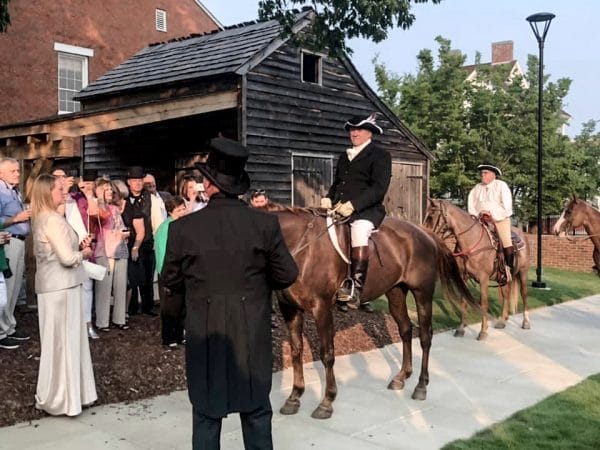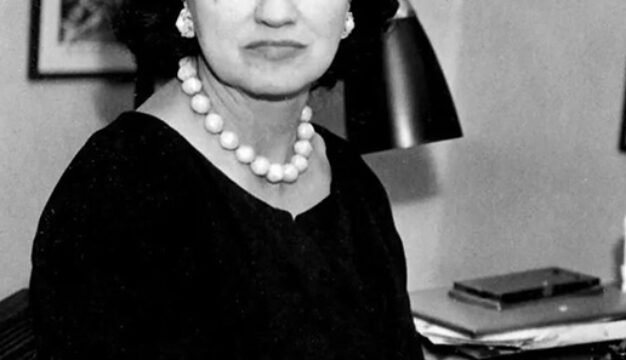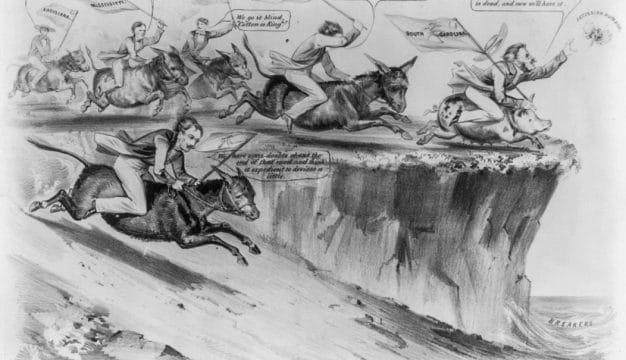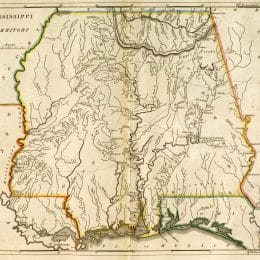Pres. James Monroe's Visit to Huntsville
On Tuesday June 1, 1819, Pres. James Monroe made an unexpected stop in the Alabama Territory while touring the southern United States to examine the status of fortifications to repel foreign aggressors and to gain firsthand impressions of the region. He stayed in Huntsville, Madison County, around the time members of the Territorial Legislature were applying for statehood for the territory, which was granted that December.
Indeed, by early 1819 Alabama had double the required 60,000 free residents for statehood. John Williams Walker, recently elected Speaker of the House, and James Titus, president of the Senate, petitioned Congress to grant statehood, and Walker petitioned his friend, Georgia senator Charles Tait, to steer through Congress Alabama’s admission to the Union. President Monroe signed an act on March 2, 1819, to enable the people of the territory to form a constitution and state government to petition for Alabama’s admission as a state. In May, 44 delegates were elected from 22 counties for a constitutional convention. It was held from July 5 through August 2 in Huntsville. Walker presided over the convention, which was led by the 28 delegates from north Alabama and 16 representing south Alabama. The convention unanimously adopted the constitution on July 30, but it was not formally signed until August 2nd.
Monroe, a native Virginian, was a distinguished veteran of the American Revolution and had served as Secretary of State (1811-1817) and Secretary of War (1814-1815) when the nascent United States had been at war with the United Kingdom during the War of 1812. Unrecognized as he arrived in Huntsville, President Monroe, Samuel L. Gouverneur Sr. (his private secretary, nephew, and son-in-law), and a Lieutenant Monroe of the Army, proceeded to the Huntsville Inn. (The exact identity of Lieutenant Monroe is unknown to modern historians but may have been one of the president’s nephews, Joseph Jones Monroe. He was in the Army at the time and served as the president’s secretary. Another nephew, James Monroe, also was in the Army, but was serving as aide de camp to Gen. Winfield Scott during the time of the visit.) Col. LeRoy Pope acted as “president” of a quickly assembled welcome committee, with Clement Comer Clay and Henry Minor acting as “vice presidents.” Pope and Clay were members of the very influential so-called Broad River Group, and among their other accomplishments, Pope also was the first chief justice of the courts of Madison County and Clay represented Madison County in the Territorial Legislature. Minor, a Virginia-born lawyer, would soon be elected to the state of Alabama’s first legislature and then to its Supreme Court in 1823.
The group invited the president to a dinner to be held the following day. The president in turn told the men that, in addition to assessing the present state of and future need for fortifications, he hoped to gain a general impression of the state of society, agriculture, industry, and the Native American tribes of the “western portion of the Union.” He furthermore mentioned that he needed to return to the nation’s capital by July 15, when the treaty from Spain ceding Florida to the United States, later known as the Adams-Adonis Treaty, was expected from Spain. Although the U.S. Senate had ratified the treaty that February, Spain would not approve it until 1821.
Word of Monroe’s visit spread quickly, and by 4:00 p.m., the next day, more than 100 of the most “respectable citizens” of Madison County, according to accounts, were sitting down with the president and his party for food and entertainment at a last-minute banquet in Monroe’s honor arranged by Capt. Toby Jones. A total of 21 toasts were made on a variety of topics, including honoring Monroe, the country, the Constitution, George Washington, heroes of the Revolution, Maj. Gen. Andrew Jackson, Gen. John Coffee, the Navy, the Army, Thomas Jefferson and James Madison, agriculture, and others. Monroe then remarked on the upcoming admission of Alabama into the Union and the hope that its addition would improve the country’s “strength and prosperity.” Monroe and his party left the following morning on their way to Nashville. On December 14, 1819, Monroe signed legislation making Alabama the nation’s 22nd state.
Monroe’s arrival in Huntsville was recreated on June 1, 2019, when actors portraying Monroe and his two companions arrived on horseback at Alabama Constitution Hall Park for the city’s celebration of the Alabama Bicentennial. And, at a dinner that evening, guests recited some of the original 21 toasts given during Monroe’s dinner and “Pres. Monroe” thanked the assembly.
Further Reading
- Bunn, Mike. “Alabama Territory: Spring 1819,” Alabama Heritage (Spring 2019): https://www.alabamaheritage.com/alabama-territory/spring-1819.










